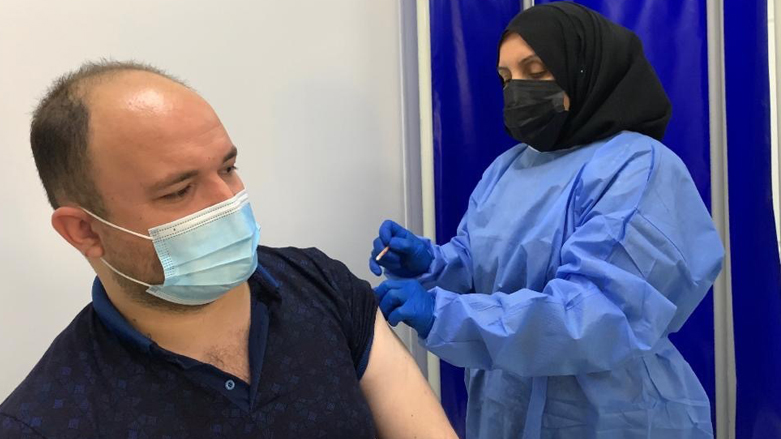Coronavirus vaccination drive ‘improved’ in Kurdistan Region, health ministry says

ERBIL (Kurdistan 24) – Nearly 400,000 people in the Kurdistan Region have received at least their first dose of a vaccine against the coronavirus, the health ministry said this week.
The Kurdistan Regional Government launched a vaccine drive in March after the arrival of donated Chinese Sinopharm vaccines. The rollout continued after both Oxford-AstraZeneca and Pfizer-BioNTech were delivered in the following weeks.
So far, nearly 400,000 doses have been administered, the ministry said on Thursday, and 4.4 percent of the Kurdish population had received a second dose. The ministry characterized the uptick in vaccinations as an improvement as early delivery was slow.
So far, people who have received their first dose make up a majority of the vaccinated population, accounting for 7.8 percent, health figures show.
The Kurdistan Region has not yet independently purchased any of the available vaccines and authorities say those talks are still ongoing. All of the jabs received so far are the autonomous region’s share of vaccines delivered to Iraq through the United Nations Covax scheme.
Every week since April, when the first batch of Pfizer-BioNTech arrived in the country, Iraq receives a delivery of the American-German jabs, from which a portion is allocated to the Kurdish region.
So far, the Kurdistan Region has recorded more than 192,000 cases of the novel coronavirus, including 4,500 deaths, since the outbreak in March 2020.
Priority groups for the vaccine include people with underlying medical conditions, members of the security forces, elderly citizens, and health care workers.
After the arrival of the first jabs, vaccine hesitancy was high among the Kurdish population, enforced by unfounded theories around immunization as well as rare but serious side effects documented elsewhere.